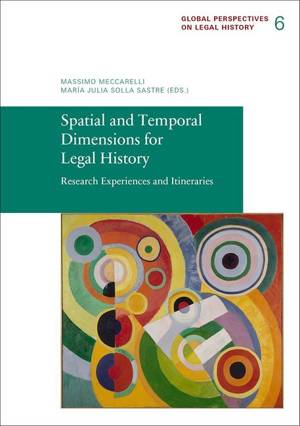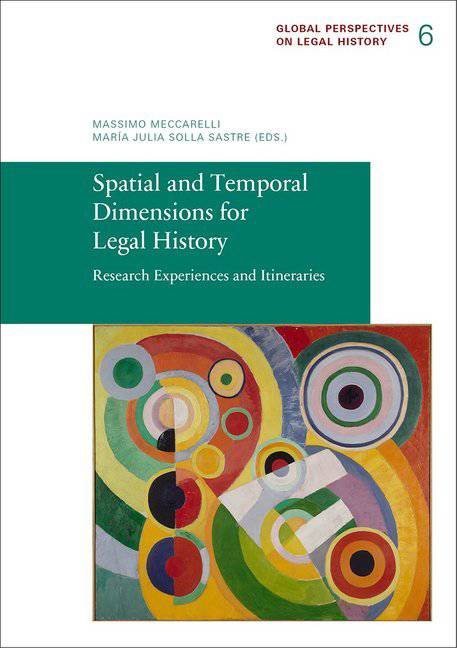
Bedankt voor het vertrouwen het afgelopen jaar! Om jou te bedanken bieden we GRATIS verzending aan op alles gedurende de hele maand januari.
- Afhalen na 1 uur in een winkel met voorraad
- Gratis thuislevering in België
- Ruim aanbod met 7 miljoen producten
Bedankt voor het vertrouwen het afgelopen jaar! Om jou te bedanken bieden we GRATIS verzending aan op alles gedurende de hele maand januari.
- Afhalen na 1 uur in een winkel met voorraad
- Gratis thuislevering in België
- Ruim aanbod met 7 miljoen producten
Zoeken
Spatial and Temporal Dimensions for Legal History
Research Experiences and Itineraries
€ 14,95
+ 29 punten
Omschrijving
The spatiotemporal conjunction is a fundamental aspect of the juridical reflection on the historicity of law. Despite the fact that it seems to represent an issue directly connected with the question of where legal history is heading today, it still has not been the object of a focused inquiry. Against this background, the book's proposal consists in rethinking key confluences related to this problem in order to provide coordinates for a collective understanding and dialogue.The aim of this volume, however, is not to offer abstract methodological considerations, but rather to rely both on concrete studies, out of which a reflection on this conjunction emerges, as well as on the reconstruction of certain research lines featuring a spatiotemporal component. This analytical approach makes a contribution by providing some suggestions for the employment of space and time as coordinates for legal history. Indeed, contrary to those historiographical attitudes reflecting a monistic conception of space and time (as well as a Eurocentric approach), the book emphasises the need for a delocalized global perspective. In general terms, the essays collected in this book intend to take into account the multiplicity of the spatiotemporal confines, the flexibility of those instruments that serve to create chronologies and scenarios, as well as certain processes of adaptation of law to different times and into different spaces. The spatiotemporal dynamism enables historians not only to detect new perspectives and dimensions in foregone themes, but also to achieve new and compelling interpretations of legal history. As far as the relationship between space and law is concerned, the book analyses experiences in which space operates as a determining factor of law, e.g. in terms of a field of action for law. Moreover, it outlines the attempted scales of spatiality in order to develop legal historical research. With reference to the connection between time and law, the volume sketches the possibility of considering the factor of time, not just as a descriptive tool, but as an ascriptive moment (quasi an inner feature) of a legal problem, thus making it possible to appreciate the synchronic aspects of the 'juridical experience'. As a whole, the volume aims to present spatiotemporality as a challenge for legal history. Indeed, reassessing the value of the spatiotemporal coordinates for legal history implies thinking through both the thematic and methodological boundaries of the discipline.
Specificaties
Betrokkenen
- Uitgeverij:
Inhoud
- Aantal bladzijden:
- 300
- Taal:
- Engels, Italiaans, Spaans
- Reeks:
- Reeksnummer:
- nr. 6
Eigenschappen
- Productcode (EAN):
- 9783944773056
- Uitvoering:
- Paperback
- Afmetingen:
- 148 mm x 17 mm
- Gewicht:
- 391 g

Alleen bij Standaard Boekhandel
+ 29 punten op je klantenkaart van Standaard Boekhandel
Beoordelingen
We publiceren alleen reviews die voldoen aan de voorwaarden voor reviews. Bekijk onze voorwaarden voor reviews.











